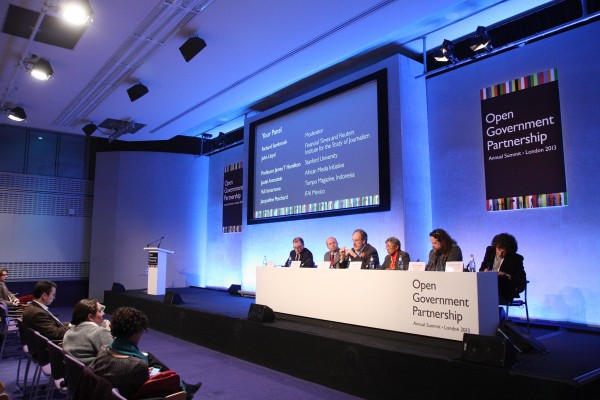On 30 June, our programme announced a call for research proposals from practitioners and researchers working in the field of citizen voice and government responsiveness. The purpose is to build a deeper understanding and evidence-base on what works (and what doesn’t work) in using technology for citizen voice, transparency and accountability. Lessons learned from this research will contribute to improving performance and practice in this field.
Making All Voices Count is interested in funding a range of themes within the field of citizen voice and accountable governance but is particularly interested in research proposals which can contribute to the Open Government Partnership (OGP)’s areas of work.
Note: Whether your research idea contributes to the OGP’s work or not, we are interested in receiving your application. Please visit the Research and Learning Grants pages for more information on the types of grant available, who is eligible to apply and Making All Voices Count’s priority themes.

“Creative Commons OGP Annual Summit London 2013” by Cabinet Office is licensed under CC BY-NC-SA 4.0
What is the Open Government Partnership?
The OGP is a multilateral initiative that aims to secure concrete commitments from governments to promote transparency, empower citizens, fight corruption, and harness new technologies to strengthen governance. Sixty-five countries have endorsed the Open Government Declaration and announced their country action plans, where government and civil society are working together to develop and implement ambitious open government reforms.
Membership of the OGP is a public sign of a government’s commitment to greater openness towards citizens in a range of ways, as a route towards greater accountability.
Funding Research & Learning Proposals in Line with the OGP
We are interested in funding applied research in/on Making All Voices Count’s priority countries (Ghana, South Africa, Kenya, Tanzania, the Philippines, Indonesia) which identifies or scopes issues, or provides useful background evidence, for either:
- OGP member governments to include in their National Action Plans (NAPs) or
- Independent Reporting Mechanism (IRM) researchers to use in their independent assessments of governments’ progress in implementing NAPs, which will then get considered and taken up by governments in future iterations of the NAPs.
Ideally research proposals will show how the design of the research process (in terms of respondents, data sources, participants, fora for gathering data or communicating about the research, policy dialogue opportunities throughout the research process) will pave the way for effective uptake of the research’s findings so that they have a demonstrable influence on the NAP, either directly or via the IRM.
For more information about the Research and Learning Grants please see here.